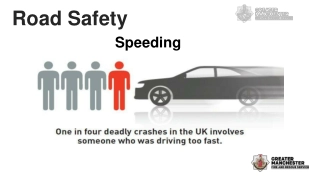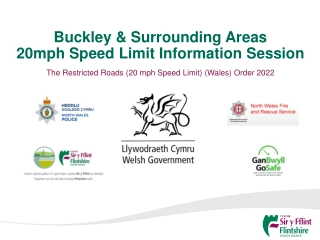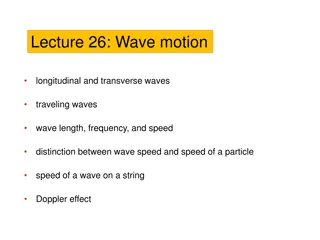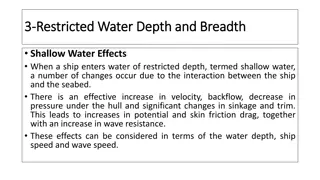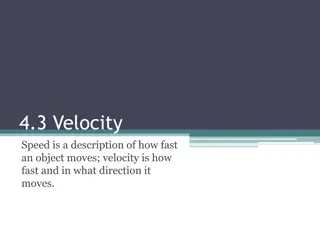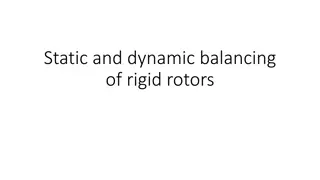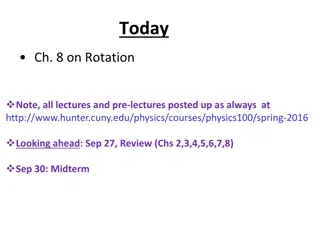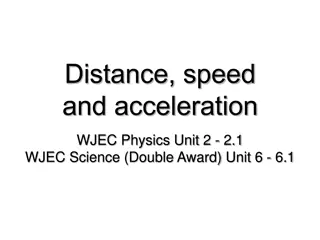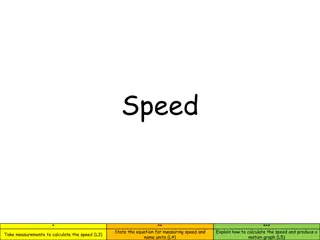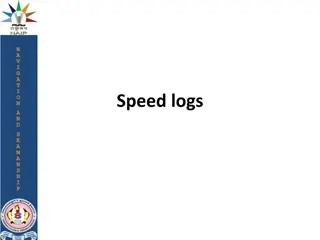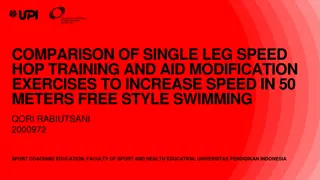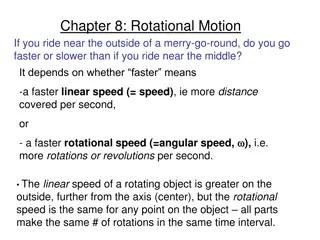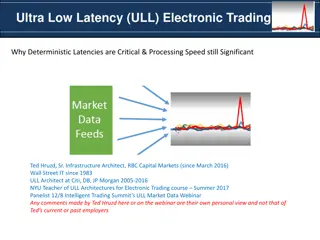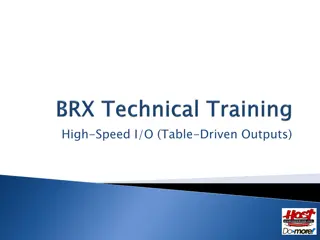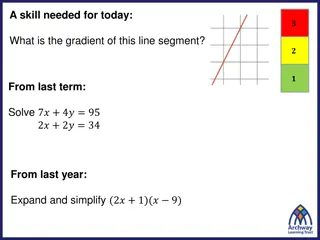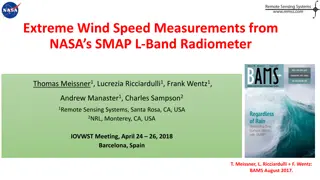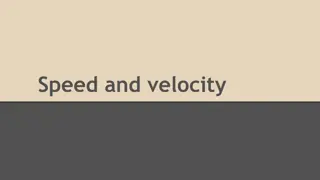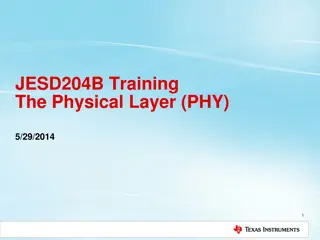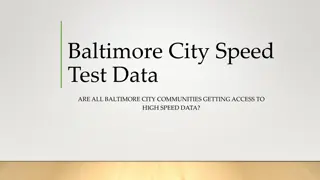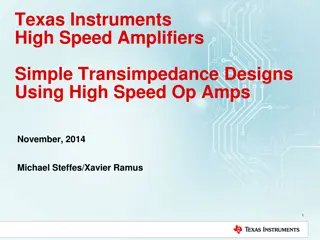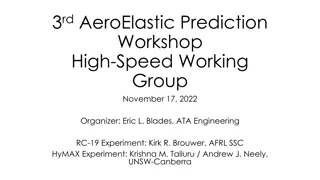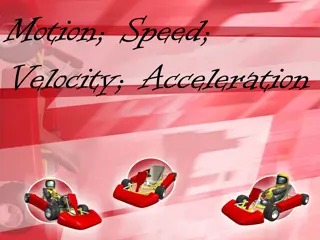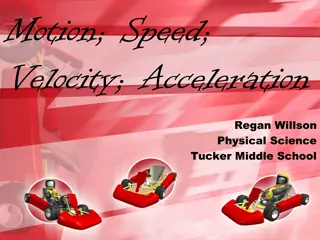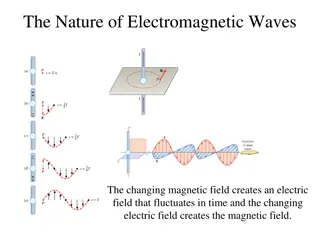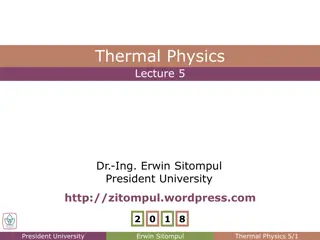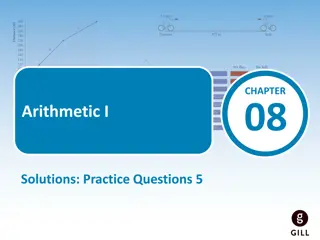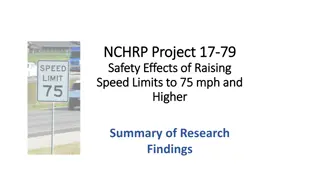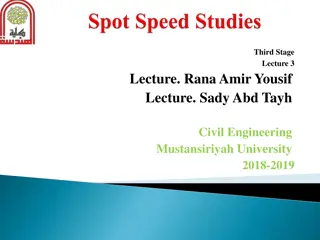Road Safety: Speeding
The dangers of speeding and why it's important to obey speed limits. Discover the impact of speed on stopping distances and the risks posed by rural roads. Follow the Two-Second Rule to maintain a safe following distance. Driving at a safe speed saves lives.
0 views • 12 slides
Mobile App Sluggish Dive into Speed Get Your Free Consultation Now!
Is your mobile app lagging? Dive into a free consultation! Accelerate speed and enhance user experience. Claim yours for a faster, smoother app today! Read full article https:\/\/www.net-craft.com\/blog\/2024\/02\/09\/mobile-app-sluggish-dive-into-speed-get-your-free-consultation-now\/
1 views • 3 slides
Buckley & Surrounding Areas: 20mph Speed Limit Information Session
The information session covers the implementation of the Restricted Roads Order 2022 in Buckley and surrounding areas, introducing a 20mph speed limit. It includes details on the legislation, criteria, and place criteria for applying the new speed limits. Residents can provide feedback to help infor
1 views • 14 slides
Controlling DC Motor using PictoBlox
Learn to control a DC motor using PictoBlox programming by setting the direction and speed of the motor, using a potentiometer and slide switch. Understand what a DC motor is, how it functions, and how to control its speed. Explore circuit diagrams, motor controlling blocks, and the process of contr
1 views • 20 slides
Understanding Wave Motion: Longitudinal and Transverse Waves
Explore the fundamentals of wave motion including longitudinal and transverse waves, wave length, frequency, speed, and the Doppler effect. Learn about different types of waves, their characteristics, and the distinction between wave speed and the speed of a particle. Discover the properties of wave
2 views • 18 slides
Effects of Shallow Water on Ship Performance and Speed
When a ship enters shallow water, various changes occur, affecting velocity, pressure, sinkage, and trim. The interaction between the ship and seabed leads to increased drag and wave resistance. The depth Froude number helps understand the impact of shallow water on ship speed. Corrections for shall
0 views • 14 slides
Understanding Velocity vs. Speed in Physics
Velocity and speed are fundamental concepts in physics that describe how fast an object is moving and in what direction. While speed is a scalar quantity representing the rate of motion, velocity is a vector quantity that includes both speed and direction. Constant velocity implies steady speed and
0 views • 8 slides
Understanding Rigid Rotor Balancing and Critical Speed
Explore the concepts of static and dynamic balancing of rigid rotors, determining when a rotor can be assumed rigid based on speed, examining Jeffcott rotor critical speed problems, and discussing the simplest model of rotor systems. Learn about rotor imbalance, free vibrations, natural frequency, a
1 views • 29 slides
Understanding Free Fall and Acceleration in Gravity
Objects in free fall experience acceleration due to gravity, increasing their speed by 10 meters per second each second. The acceleration is denoted by 'g,' with an average value of around 10 m/s². When falling from rest, the speed of an object can be calculated using the formula v = gt. Likewise,
1 views • 21 slides
Understanding Rotational Motion in Physics
Exploring rotational motion concepts in physics, including the relationship between linear and rotational speed on rotating objects like merry-go-rounds and Ferris wheels. Learn about tangential speed, angular speed, and the principle of rotational inertia that explains why objects tend to keep rota
3 views • 29 slides
Understanding Speed of Movement in Different Situations
Exploring the concept of speed in the context of moving objects, this activity aims to analyze changes in speed, create hypotheses, and test them using a built-in GPS sensor. The theoretical background covers the definition of speed, its relation to distance and time, as well as the distinction betw
2 views • 27 slides
Understanding Training on High-Speed Roads in the UK
This comprehensive program aims to assist driver trainers in helping learners and new drivers develop the necessary skills to navigate high-speed roads in the UK safely. Covering key areas like the high-speed network, risks, deregulation of motorways, essential competencies, and more, it is a valuab
1 views • 49 slides
Principles and Applications of Centrifugation in Microtomy and Microscopy
Centrifugation is a process that separates substances based on density using high-speed rotation. This article explores the basic principles of centrifugation, instrumentation, and applications in the fields of microtomy and microscopy. It covers the different types of centrifuges, such as low-speed
0 views • 28 slides
Understanding Distance, Speed, and Acceleration in Physics
Explore the concepts of distance, speed, and acceleration in physics with practical examples and calculations. Learn how to calculate speed, interpret distance-time graphs, differentiate between speed and velocity, and understand acceleration through scenarios involving various moving objects. Gain
9 views • 12 slides
Understanding Centrifugation: Industrial and Laboratory Applications
Centrifugation is a procedure that utilizes centrifugal force to separate components based on density in mixtures for both industrial and laboratory purposes. This process involves the rotation of particles at high speeds to induce sedimentation. Different types of centrifuges, such as low-speed and
0 views • 18 slides
Understanding Circular Motion in Physics
Circular motion involves objects moving in a circular path at a constant speed, experiencing acceleration and centripetal force. This motion is characterized by angular speed, centripetal acceleration, and the necessary centripetal force. The concept of uniform circular motion and angular displaceme
3 views • 38 slides
Ultimate Guide to Pinewood Derby Speed Clinic
Pinewood Derby Speed Clinic offers innovative techniques and a reverse build concept to maximize your car's speed. Learn the principles of speed, steps for the reverse build, and key design decisions to enhance performance. Explore baking the car for weight distribution, extending the wheelbase, det
2 views • 14 slides
Understanding Speed and Motion: Equations, Calculations, and Graphs
Speed is defined as the distance traveled per unit of time and is measured using the equation Speed = Distance/Time, with units typically in meters per second (m/s). To calculate speed, measure the distance traveled and the time taken. Motion graphs can be used to visualize speed by plotting time on
2 views • 11 slides
Understanding Speed Logs and Their Evolution in Maritime Navigation
Speed logs play a crucial role in measuring a vessel's speed and distance traveled through water. The evolution from primitive chip logs to modern RPM counters has significantly improved accuracy and efficiency in maritime navigation. Learn about the history, types, and working principles of speed l
0 views • 17 slides
Comparison of Single Leg Speed Hop Training and Aid Modification Exercises for Improving Speed in 50m Freestyle Swimming
This study examines the impact of single leg speed hop training and modified aid exercises on enhancing speed in 50m freestyle swimming. The research involves two groups undergoing specific training methods over 12 sessions within a week. Results discuss the descriptive statistics, normality test, h
0 views • 7 slides
Understanding Rotational Motion: Linear vs. Angular Speed
Exploring the concept of rotational motion, this content delves into the comparison between linear speed (tangential speed) and rotational speed (angular speed). It discusses how the linear speed varies based on distance from the axis of rotation, while the rotational speed remains constant for all
0 views • 27 slides
Importance of Ultra-Low Latency in Electronic Trading
Understanding deterministic latencies and processing speed is crucial in ultra-low latency (ULL) electronic trading to ensure optimal access to market data. Ted Hruzd, an industry expert, emphasizes the significance of Speed2 over raw speed (Speed1) in maximizing trading revenue for Market Makers by
0 views • 13 slides
High-Speed I/O Table-Driven Outputs Overview
Explore the capabilities of high-speed I/O table-driven outputs as showcased in the BX10, BX18, and BX36 devices. Learn about the discrete and analog input/output configurations, Ethernet ports, and high-speed features available in these devices. Additionally, understand how to set up and manage out
0 views • 13 slides
Understanding Design Speed in Highway Engineering
Design speed in highway engineering refers to the selected speed used to determine the geometric features of roadways. It has evolved over time, with the current definition emphasizing safety, driver expectations, and balancing various factors like social, environmental, and economic considerations.
0 views • 12 slides
Understanding Speed and Distance in Different Scenarios
Explore various scenarios involving speed and distance, such as calculating gradients of line segments, solving equations, determining average speeds of individuals like Felix Baumgartner and a snail named Archie, and understanding the concept of speed not being constant through examples like Earth'
0 views • 12 slides
Understanding Speed of Movement in Different Situations
This activity focuses on measuring and analyzing the speed of a moving object in various scenarios by creating hypotheses and testing them using a Labdisc built-in GPS sensor. It delves into the theoretical background of speed and velocity, exploring how different parameters affect the movement of a
0 views • 27 slides
Understanding Extreme Wind Speed Measurements from NASA's SMAP L-Band Radiometer
NASA's SMAP (Soil Moisture Active Passive) mission has been collecting data on extreme wind speeds since April 2015 using an L-band radiometer. The measurements provide valuable insights into wind speed frequencies, with a wide range of signals received by the sensor challenging the data analysis. A
0 views • 17 slides
Understanding Speed and Velocity in Physics
Speed and velocity are fundamental concepts in physics. Speed is a scalar quantity that can be average or instantaneous, while velocity is a vector quantity that includes direction. Equations such as v=d/t help calculate these values. Average speed and average velocity are important in determining t
1 views • 10 slides
Understanding JESD204B Physical Layer (PHY) in High-Speed Serial Interfaces
The JESD204B training presentation delves into the Physical Layer (PHY) of high-speed serial interfaces, covering topics such as speed grades, compliance types, SERDES solutions for long channels, clocking information, differential link data transmission, and electrical requirements for drivers and
0 views • 20 slides
Baltimore City High-Speed Data Access Analysis
The Baltimore City Speed Test Data analysis examines the internet speed access in various communities within Baltimore City. The report includes details on average download speeds, communities with the lowest speeds, and a comparison of internet speed requirements for different online activities. Th
0 views • 7 slides
High-Speed Amplifiers: Design Techniques and Considerations
This detailed document explores the design aspects of high-speed amplifiers, focusing on transimpedance designs using high-speed op-amps. It covers basic and advanced design issues, frequency response analysis, and key considerations for achieving desired performance. The content emphasizes simplifi
0 views • 44 slides
Aeroelastic Prediction Workshop High-Speed Working Group Details
Workshop details for the Aeroelastic Prediction Workshop High-Speed Working Group including information on organizers, experiments, participants, tools used, schedule, registration, and presentation plans. The workshop will focus on sharing results and comparisons related to high-speed aeroelastic p
0 views • 9 slides
Understanding Motion, Speed, Velocity, and Acceleration
Motion is when an object changes its place or position. To describe motion accurately, consider the start and end position, movement relative to a reference point, distance traveled, and direction. Speed refers to the distance traveled per unit of time and can be calculated using the formula speed (
0 views • 25 slides
Understanding Motion, Speed, Velocity, and Acceleration in Physical Science
Explore the concepts of motion, speed, and velocity along with practical examples and calculations. Learn to describe motion, calculate speed using formulas, solve speed math problems, and understand the different ways to calculate speed. Dive into the world of physical science with explanations and
0 views • 26 slides
Understanding Electromagnetic Waves: Speed, Spectrum, and Applications
Electromagnetic waves are characterized by the interplay between changing magnetic and electric fields, propagating at the speed of light in a vacuum. This speed, denoted by 'c,' is a fundamental constant. The electromagnetic spectrum encompasses a range of frequencies and applications, from radio a
0 views • 12 slides
Understanding Molecular Speed Distribution in Thermal Physics
Exploring the distribution of molecular speeds in gases at different temperatures through the Maxwell-Boltzmann speed distribution law. This lecture covers the concepts of probability distribution functions for speed intervals, comparison of speed distributions at varying temperatures, and calculati
0 views • 22 slides
Practice Questions on Speed and Distance with Solutions
Practice solving speed and distance problems with the provided solutions for scenarios involving a bullet, Bill jogging, and an airplane journey from New York to Los Angeles. Understand how to calculate speed, average speed, and arrival time based on distance and time measurements. Improve your arit
0 views • 34 slides
Implications of Raising Speed Limits to 75 mph and Beyond: Research Summary
This research project delves into the safety effects of increasing speed limits to 75 mph and higher, providing key findings from literature reviews, state assessments, and operational analyses. It aims to guide highway agencies in understanding the safety implications of elevated speed limits, exam
0 views • 27 slides
Understanding Spot Speed Studies in Traffic Engineering
Spot speed studies are essential in estimating vehicle speeds in traffic streams, aiding in establishing traffic parameters, control measures, and safety evaluations. These studies involve recording vehicle speeds at specific locations to analyze speed trends, set speed limits, and assess the impact
0 views • 17 slides
Exploring Speed and Distance Estimation in Speed Trap Lab
Dive into the world of speed and distance estimation with the Speed Trap Lab. Learn how to calculate speed and distance, taking into consideration uncertainties and variations in time measurements. Explore the relationship between distance, time, and speed through engaging visual aids and practical
0 views • 4 slides
